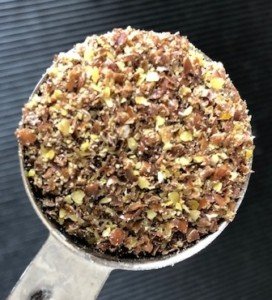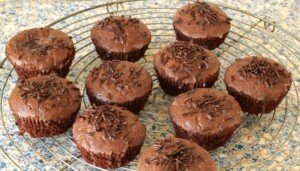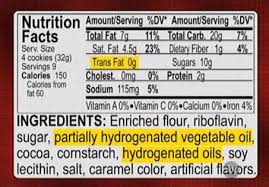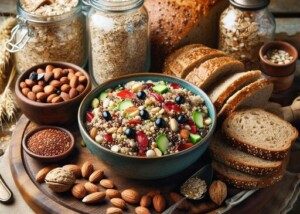The word “muffin” conjures up the idea of a bad or unhealthy food.
But some muffins can be much better for you than others, even though most muffins you buy from a store or bakery are loaded with sugar and white flour, and may have many chemical additives including artificial colors.
- Example: those bite- or mini-size muffins that come in a box in the Twinkie section.)
- Or the giant ones at one of those huge stores that sell in bulk.
“Many traditional muffin recipes use high volumes of fat and sugar, but dieters can still enjoy healthy muffins that are packed with fruits, vegetables, whole grains, seeds and nuts,” says Sara Artigues, a registered dietician and certified personal trainer out of New Orleans.
How to Easily Avoid Unhealthy Muffins
It’s simple. Do not buy mass-produced muffins from the baked goods section of a conventional supermarket. These are the worst as far as ingredients.
In addition to the fat and sugar, they often contain the heart-toxic trans fats.
Even if you’re not trying to lose weight, a muffin that’s been mass produced in a factory is bad news for the body, even if it contains whole blueberries.
Blueberries are very healthful, but this does not undo the bad ingredients in some commercial muffins.
Muffins from a restaurant don’t come with an ingredients list, but they may have been commercially produced.
The ingredient lists for some muffins from a “health food store” aren’t as bad or lengthy as the ones for those from conventional grocers or retail stores that have grocery departments.
But — muffins from Whole Foods, for instance, will still contain as much sugar and white flour – though some are also made with rice flour.
These muffins, however, usually do not contain trans fats, artificial flavors or artificial colors.
There are also non-dairy and vegan varieties. But ALWAYS read the ingredients list. “Vegan” means no animal products. It doesn’t mean no artificial chemicals.
And by the way, if either of the following are in the ingredients list, it means the product contains trans fats:
• Partially hydrogenated oil
• Shortening
Homemade Muffins
“Making your own muffins is the best way to make sure that they meet your dietary restrictions,” continues Artigues.
“When baking, try swapping out sugar for Stevia, or other more natural, plant-based sugar substitute that has no calories.
“If you use raw regular sugar, you can cut the recipe’s portion in one-half or less, or try foods like unsweetened applesauce, honey, bananas to add sweetness as well.”
If the recipe calls for oil, substitute the same amount in the form of unsweetened applesauce.
And of course, if you want to avoid egg yolks, you can replace with just the whites.
Can a muffin truly be “healthy”?
A muffin will never match the nutrient value of a bowl of fruit or a salad of various greens and other vegetables dressed with olive oil and white wine vinegar.
Components of the muffin can be health-giving such as whole bits of fruit, raisins, nuts and seeds.

Egg yolk in the muffin will offer vitamins and the antioxidant mineral selenium. Any applesauce in there will also be helpful.
Whole grains are better than white flour, and whole grains offer micronutrients and fiber.
But added sugar and any white flour have no value other than to add taste and texture.
Thus, a muffin can’t be a health food per se, but at least you can make them with enough nutritious ingredients to feel comfortable giving them to your kids and occasionally over-indulging yourself.
And remember, a muffin sweetened with Stevia or homemade applesauce takes the “healthiness” of a homemade muffin to a whole new level.


 Sara’s
Sara’s 







































